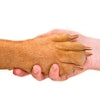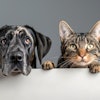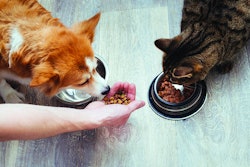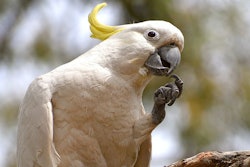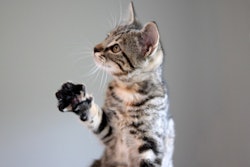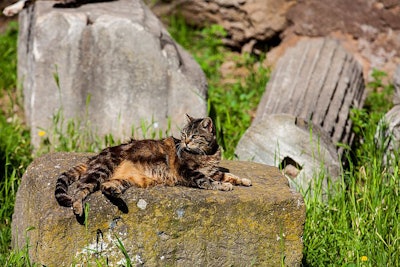
Repercussions for the global pet food industry may grow as the Russia-Ukraine War throws the continent into chaos. While relatively insignificant compared to the loss of life and livelihood in Ukraine, pet food makers around the world may face increasing disruptions to already snarled supply chains.
“The pet food industry has been affected by global events in the past,” a representative of the European Pet Food Federation (FEDIAF) told Petfood Industry in an email. “While with the help of governments, authorities and other stakeholders our industry has managed to continue supplying pets around the world, this war has the potential of creating a major disturbance in international logistics.
“As a result of the war in Ukraine, ships cannot leave Black Sea ports and therefore all exports and trade have stopped. In addition, the international sanctions on many Russian companies will have an impact. In the midst of the developments, many pet food manufacturers have suspended trade with Russia while some have chosen to continue supplying – as they have employees to consider and pets to feed in the local population.
“The Pet Food Industry is resilient. The pet food industry will be working hard behind the scenes to ensure that the supply of pet food meets the demand,” the representative said and answered more questions about how the Russia-Ukraine War might affect cat, dog and other pet food industries in Europe.
1. How might pet food ingredient shortages or supply disruptions result from the war?
Although pet food manufacturers use different raw materials and supply chains, there will be huge repercussions for the food industry. We will be affected by the limited availability of some key raw materials such as sunflower oil and derived ingredients. There are also concerns relating to white fish, packaging raw materials and wider impacts on global cereals markets. Plus, disruption to logistics and the availability of Russian fertilizer and fuel will be a shock to the market.
Ukraine and Russia are both large food producers. Ukraine is the EU’s fourth-biggest external provider of food. The EU has traditionally received over half its corn imports, around a fifth of soft wheat imports and a quarter of its vegetable oil from Ukraine.
Russia is the world’s top exporter of nitrogen fertilizers and the second leading supplier of both potassic and phosphorous fertilizers.
Russia is also the EU’s top gas supplier; we rely on Russia for 40% of our gas. Although supplies have remained reliable since the invasion, prices have soared.
2. What can pet food companies do to adapt?
The pet food industry successfully navigated the challenges of the pandemic by adapting supply chains and sourcing alternative raw materials.
However, pet food companies will all be looking to the future. Pet food companies will be actively looking for alternative suppliers of raw materials that are no longer available such as sunflower seeds. They may also be looking to substitute these with alternative ingredients.
Any change in raw materials can impact supply chains and availability. It also has an impact on product labels. As members of FoodDrinkEurope, we are working to ensure flexibility around product labeling to minimize potential disruption to supplies, whilst maintaining food quality and safety.
3. How are pet food companies working to help Ukrainians and their pets?
FEDIAF members have been responding in numerous ways to support the Ukrainian people and their pets. Members have donated financial aid in addition to pet food.
Many companies are continuing to look for ways of helping those in Ukraine plus the refugees in neighboring countries. FEDIAF is coordinating with companies to identify the best channels for this aid.
FEDIAF is also pleased that the Commission quickly eased the regulation concerning the entry into the EU of pets so that member states are allowed to develop permit arrangements applying to Ukrainian refugees traveling with pets.

